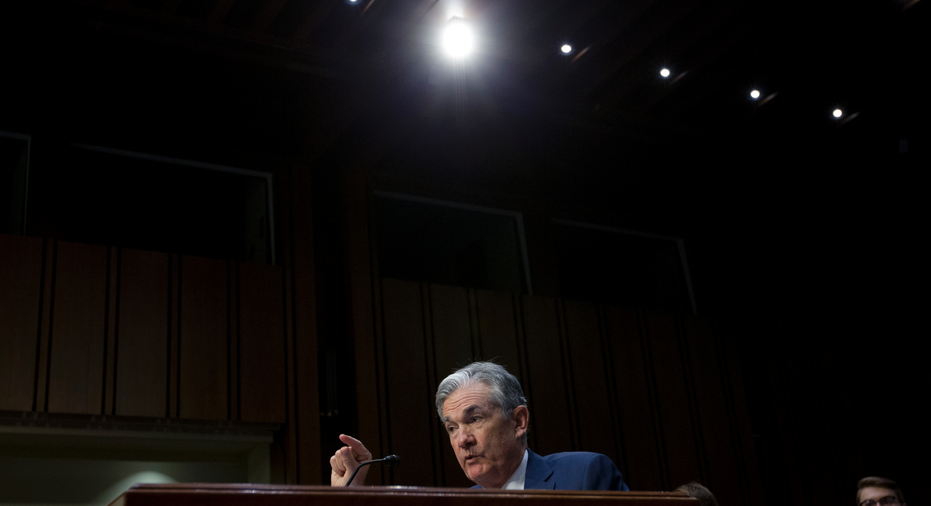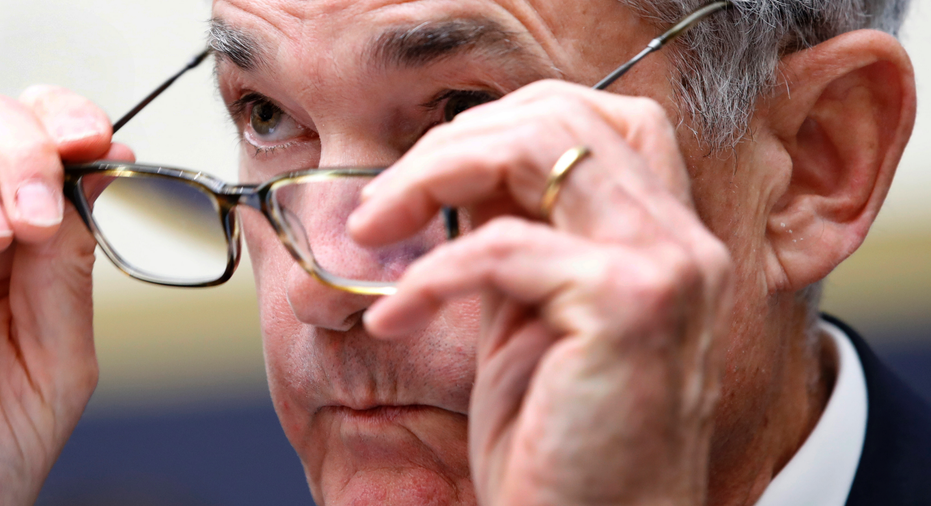Fed Chair Powell's take on economy is awaited as risks loom
WASHINGTON – Is financial turmoil in Turkey and other emerging economies at risk of spreading? Will America's trade war with China derail the U.S. economy? Does the Federal Reserve have the means to fight the next recession?
And: Is Chairman Jerome Powell troubled by President Donald Trump's public denunciation of the Fed's interest rate hikes?
When Powell gives the keynote address Friday at an annual conference of central bankers in Jackson Hole, Wyoming, the world will be seeking any clues to his stance on those questions — and how any of it might affect the Fed's rate policy.
If Powell sounds confident that the economy won't be unduly hurt by the Trump administration's tariffs on imports or by a currency crisis in developing markets, investors would likely conclude that the Fed will keep raising rates, albeit only gradually.
But if Powell sounds a message of concern, it could be read as a sign that the Fed is considering slowing its hikes. A slower pace of rate increases would be intended to encourage continued borrowing and spending by companies and individuals to drive economic growth.
Amid the splendor of the Grant Teton Mountains, the Fed chairman will speak to his fellow central bankers — and the world — beginning at 10 a.m. Eastern time. For Powell, six months into his post as Trump's choice to lead the world's most important central bank, Jackson Hole will provide his highest-profile platform to date — and his first chance to respond publicly, if he wishes, to Trump's recent criticism of the Fed's rate hikes.
This week, Trump complained in an interview with Reuters that he was "not thrilled" with Powell's Fed for raising rates. It marked the second time this summer that Trump had publicly criticized the policymaking of the Fed, which by tradition has always functioned independently of the White House and free of political influence.
The Fed has been in the process of raising its benchmark lending rate after keeping it at a record low near zero for seven years to help the economy recover from the Great Recession. Having raised rates once in both 2015 and 2016, the Fed did so three times last year and twice so far this year. In June, its policymakers predicted a total of four rate increases this year, presumably one additional hike in September and one more in December.
The series of modest rate hikes is intended to prevent the economy from overheating and inflation from accelerating. But higher rates make borrowing costlier and can depress stock prices. Some question whether Trump's trade war and the financial crises in emerging nations might so endanger the U.S. economy that the Fed would have to slow or suspend its rate hikes — or even consider cutting rates again.
"The Fed could be forced to act if incoming economic data showed the U.S. economy was hurting," said Sung Won Sohn, chief economist at SS Economics, an economic consulting firm. "There is a growing threat, and I think it would be a mistake to believe the problem will be limited to Turkey."
Still, for now, Sohn and other analysts say they think the Trump administration's tit-for-tat tariff battle and the turbulence abroad remain benign threats occurring against the backdrop of a robust U.S. economy. The U.S. gross domestic product grew at a brisk 4.1 percent annual rate in the April-June quarter, the fastest such pace since 2014. Unemployment, at 3.9 percent, is near a 50-year low.
"There will be a lot of talk on the sidelines of the conference about trade and other threats, but at the moment the U.S. economy is going great and the Fed will keep raising rates," said Diane Swonk, chief economist at Grant Thornton in Chicago.
To some Fed watchers, the financial trouble in emerging economies has raised at least the risk of a global meltdown akin to the 1997-98 Asian currency crisis. During that crisis, weakness in Thailand spread to other nations, sending about 40 percent of the world into recession. Just as is true now, rising U.S. rates drew capital from emerging markets and into higher-yielding U.S. securities, depressed foreign currencies and made it costlier for borrowers in those countries to repay their dollar-denominated debts.
During the 1997-98 crisis, the Fed imposed an emergency rate cut and successfully insulated the U.S. economy from the global turmoil. Some wonder whether Powell would try to perform the same magic this time if the global picture seemed to imperil the U.S. expansion, now the second-longest on record.
Trump says the economy's health proves that his tax cuts, deregulation and insistence on more favorable trade deals are helping produce "amazing" growth that he insists will only strengthen further.
Most economists disagree. Many say that while the Trump tax cuts and increased government spending will help deliver solid growth of around 3 percent for 2018, they expect a slowdown over the next two years as the benefits of the tax cuts fade and continued Fed rate hikes take a toll.
Powell's speech Friday in Jackson Hole will be followed by a presentation of academic papers addressing the theme of this year's conference, "Changing Market Structure and Implementation for Monetary Policy." Discussion will turn to such issues as why wage growth has been so slow, what can be done to boost sluggish worker productivity growth and the impact that giant corporations are having in high tech and other sectors.
Past Fed leaders have sometimes used the Jackson Hole conference to signal changes in Fed policies. But most economists think Powell will refrain from signaling any change in the Fed's plans for interest rates.
"Powell has set a course for the Fed, and he is going to stay on that course unless economic conditions change dramatically," said David Jones, the author of several books on the history of the Fed. "I think Powell will be less sensitive to foreign developments and more focused on the domestic economy, barring some huge crisis."





















